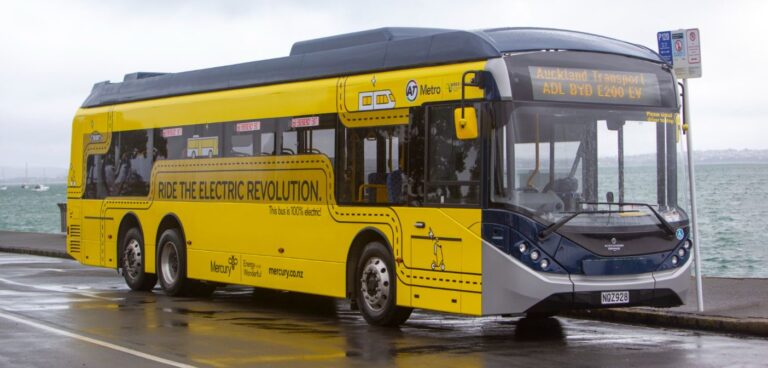Bus manufacturer Alexander Dennis Limited (ADL) has delivered its first extra-large electric buses in New Zealand to Auckland Transport.
According to ADL, the Enviro200EV XLB is a further evolution of the successful combination of its expertise in tailoring buses to transport authorities and operators’ requirements with BYD’s battery technology.
The 12.6m long vehicle has three axles, allowing it to qualify for reduced road user charges in New Zealand, thanks to lower axle loads.
Joining the Auckland Transport fleet, the zero-emission bus, with a total passenger capacity of 78, will be evaluated on different services in New Zealand’s largest city in trials supported by energy supplier Mercury.
Up to 36 passengers can be seated, and two wheelchair spaces are provided which are accessed via a manual ramp at the front door.
The bus will be fully supported by ADL’s local aftermarket team providing skilled labour and genuine parts to ensure optimum vehicle performance.
ADL’s general manager in New Zealand, Tony Moore, said: “The launch of our extra-large electric bus marks an exciting new chapter in our partnership with Auckland Transport.
“After bringing the first electric buses to the city in 2018, we now have a zero-emission bus that is fully designed to New Zealand requirements – and is made locally, boosting the economy and supporting skilled jobs.”
ADL’s electric buses in New Zealand have already completed more than one million zero emission kilometres in service. Like its two-axle siblings, the BYD ADL Enviro200EV XLB will be built locally by ADL’s partner Kiwi Bus Builders on BYD chassis, supporting New Zealand’s transition to a decarbonised bus fleet by 2035.
Auckland transport metro decarbonisation manager, Darek Koper, said the introduction of this new three-axle electric bus completes the procurement of the zero-emissions trial bus fleet: “This trial fleet provides a range of options for New Zealand bus operators, and it will build operator confidence in new technology.
“It will also allow them to understand operational requirements and costs to inform future procurement decisions, while supporting the accelerated transition to zero emission buses in Auckland.”





